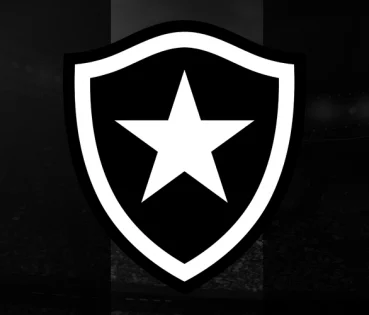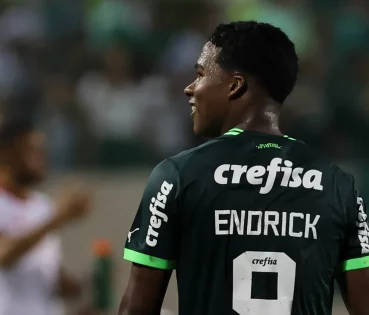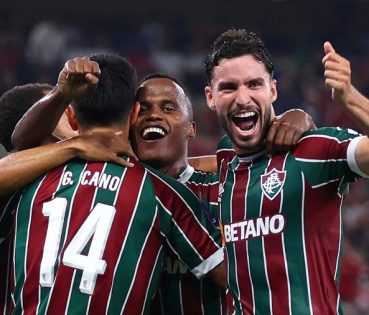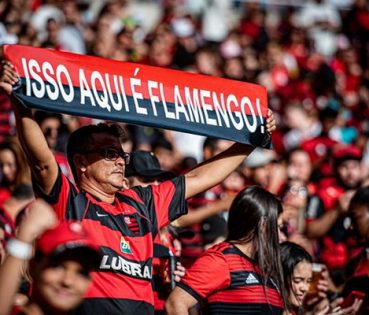Santos a symbol of transformed Brazilian league
Link this
Share this
Email
Print
Related Topics
By Andrew Downie
SAO PAULO | Mon Jun 18, 2012 11:50pm BST
(Reuters) – The year Luis Alvaro Ribeiro took over as president of Santos, the famous Brazilian club sold fewer than 4,000 official shirts, sponsorship rights totalled less than $4 million (2.55 million pounds) and annual income was just $34 million.
Three years later, following an overhaul of their amateur era statute and the hiring of international experts in management, marketing and law, Santos are earning more than $19 million shirt sponsors.
The club also recently launched a new away shirt in electric blue and sold 25,000 in 45 days. Annual income last year surpassed $90 million.
The turnaround has been helped by the team’s best winning streak since the great Pele played for the club half a century ago.
However, it would have been impossible without the restructuring process Ribeiro put in place, one of several being undertaken among Brazilian football’s heavily indebted clubs.
Encouraged by a rising middle class with money to spend, ambitious and cash-rich sponsors and a strong local currency that makes signing and retaining players easier, clubs are no longer run in a chaotic fashion and are becoming more professional.
They still cannot rival the likes of Barcelona and Manchester United but, for the first time, Brazilian clubs are treating their off-field activities seriously.
“Luis Alvaro surrounded himself with people who had top experience in the business and financial worlds,” said Amir Somoggi, sports management consulting director at auditing firm BDO Brazil.
“He professionalised the club by making it more like a business.”
Similar changes are taking place at other Brazilian clubs as younger executives take over an older generation of directors, many of whom faced accusations of mismanagement. Income is rising hugely as a result.
The top 20 clubs generated 2.14 billion reais last year, a 27 percent increase on 2010 and up 73 percent four years earlier, according to a BDO report.
Money is pouring into the game because of Brazil’s decade-long economic boom and football’s growing popularity, said experts and executives at different clubs.
In 2003, the government introduced legislation that tightened security in and around Brazil’s dilapidated football grounds.
The league earned more credibility the same year when it abandoned the complicated and unpredictable playoff system in favour of a more stable competition like that used in England, Spain and Germany.
The recent financial crisis in Europe has stopped clubs there cherry-picking Brazilian players and forced the country’s teams to rely less heavily on transfer fees.
The amount clubs received TV deals has jumped sharply this year thanks to new negotiating rules.
The return of former Brazil striker Ronaldo has also been a boost.
The ex-World Footballer of the Year joined Sao Paulo-based Corinthians in 2009 and the close partnership the team formed with sponsors to make the deal work showed clubs new ways of making money.
Ronaldo retired last year.
“We decided to invest in football because we could see the visibility it offers is enormous,” said Marcio Alaor de Araujo, vice president of BMG, a bank that sponsors five clubs including Santos.
“That is growing and the publicity will only grow even further as the (2014) World Cup comes closer.”
BMG invested 70 million reais in sport last year, 63 million in football. Around 40 million of that was to get their name on the front of the iconic white Santos shirt.
“The return on our investment was eight times what we would have got by investing in media,” Araujo said.
Many Brazilian clubs now have membership schemes that guarantee revenue and ticket sales. Santos have 25,000 members but Corinthians have 60,000 and Internacional have almost twice that, more than even Real Madrid.
Merchandising is an increasingly important source of revenue. TV and publicity now account for half of the income generated by Brazilian clubs.
CREATIVE CHANGE
The most creative change has been with sponsors who see football as a way to reach the millions of Brazilians who have joined the consumer classes in recent years.
That is most evident at Santos thanks to Neymar, a 20-year- old striker with a Mohican hairdo, an eye-catching smile and talent rivalling Barcelona and Argentina striker Lionel Messi.
In the past, players like Neymar moved to Europe at a young age and Barcelona, Real Madrid and Chelsea have already tried to sign him.
But the gifted youngster has stayed at Santos because he can earn as much at home thanks to creative deals sponsors pay his wages in return for image rights.
According to media reports he earns a salary of three million reais per month, with Santos paying no more than a quarter and the rest coming sponsors.
Corinthians did similar deals with Ronaldo last year and Flamengo tried the same with former Barcelona and AC Milan playmaker Ronaldinho.
“If the people in the advertising agencies are right, there are between 30 and 50 million people that were not in the market 10 years ago,” said Alvaro de Souza, a former president of Citibank Brasil who is now a director at Santos.
“Every one of them has a soccer team and they have money to spend.”
BRAZIL BEHIND
Brazilian clubs, though, are still lagging way behind their European rivals.
The country’s top earning club Corinthians brought in the equivalent of 112 million euros last year while Real Madrid picked up 480 million euros, according to Deloitte’s Football Money League 2012.
There are teams in England’s second tier that make more money than Santos, the report said.
Brazilian stadiums are still dilapidated, the services they provide supporters are invariably third rate and the clubs do little to attract revenue abroad.
While income for the top 20 clubs has risen, overall debt has gone up faster, climbing 2.04 billion reais in 2007 to 3.86 billion reais in 2011.
Instead of using the extra cash to pay debts, club directors spend it on players and not always wisely.
“When you have a company that is in poor financial health and you get a boost in income, that is the time to reduce your debt,” said Fernando Ferreira, president of Pluri, a football consultancy firm.
“The problem is clubs are not companies, the directors are motivated by internal politics and they have no long-term commitment to bringing financial stability. It is easier just to leave it to the next person.”
Fonte: http://uk.reuters.com/article/2012/06/18/uk-soccer-brazil-santos-idUKBRE85H1UN20120618







